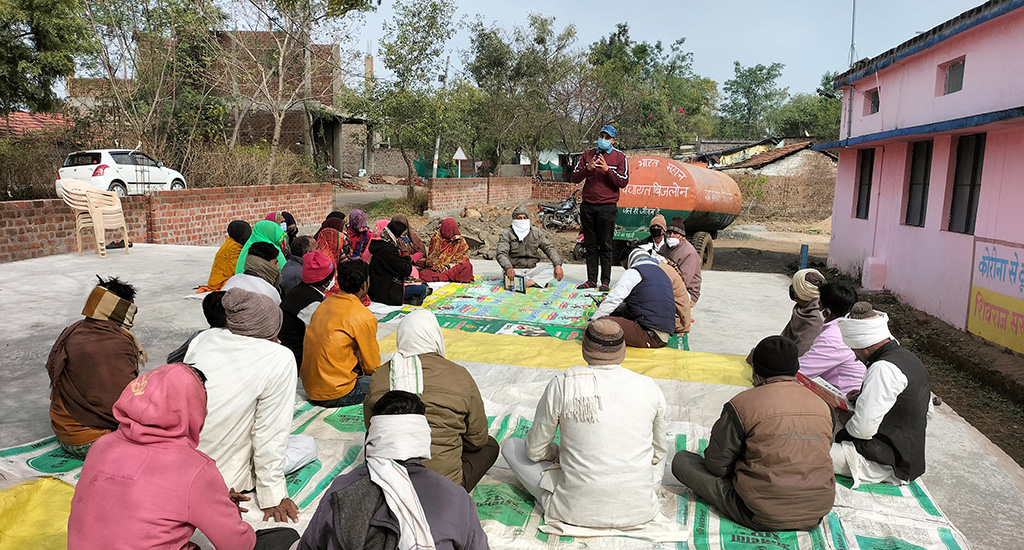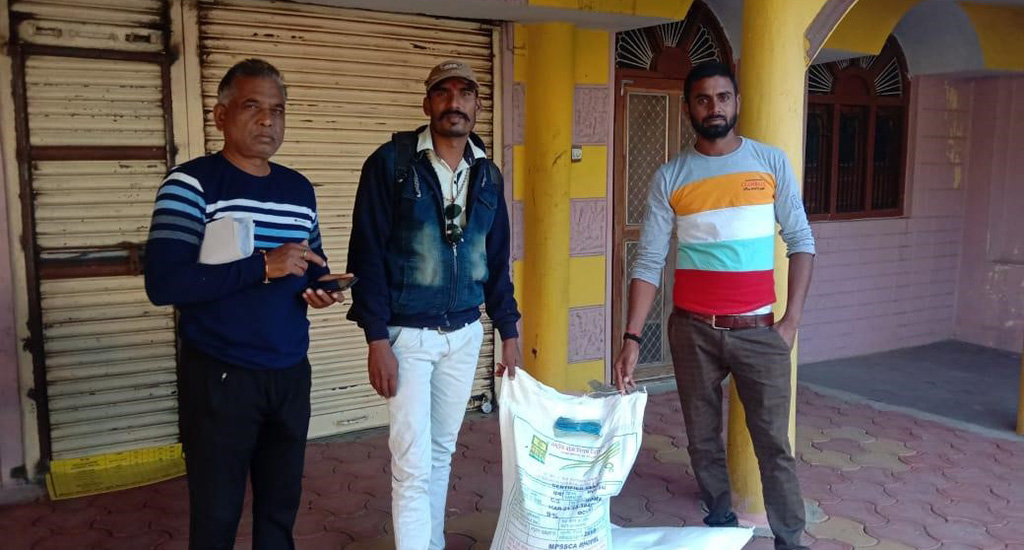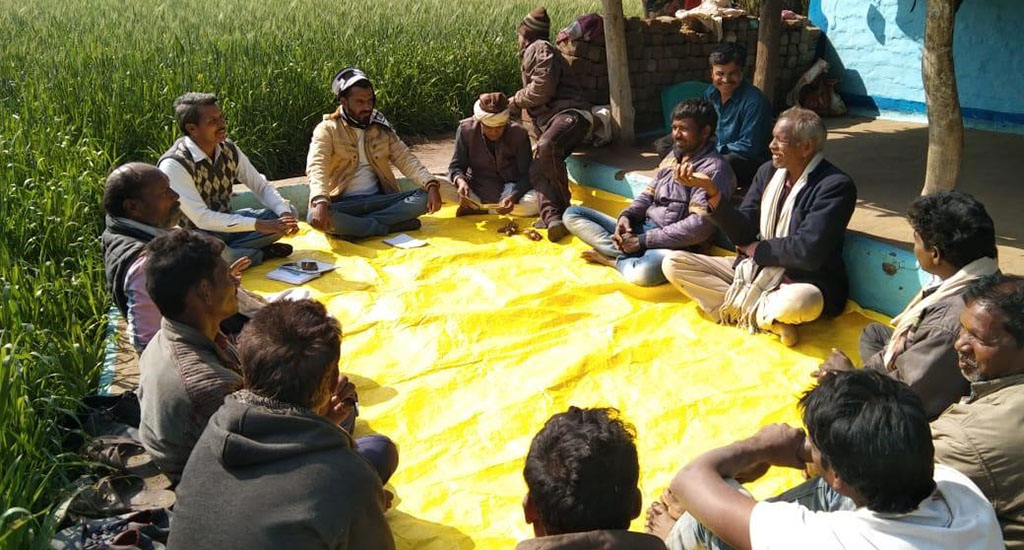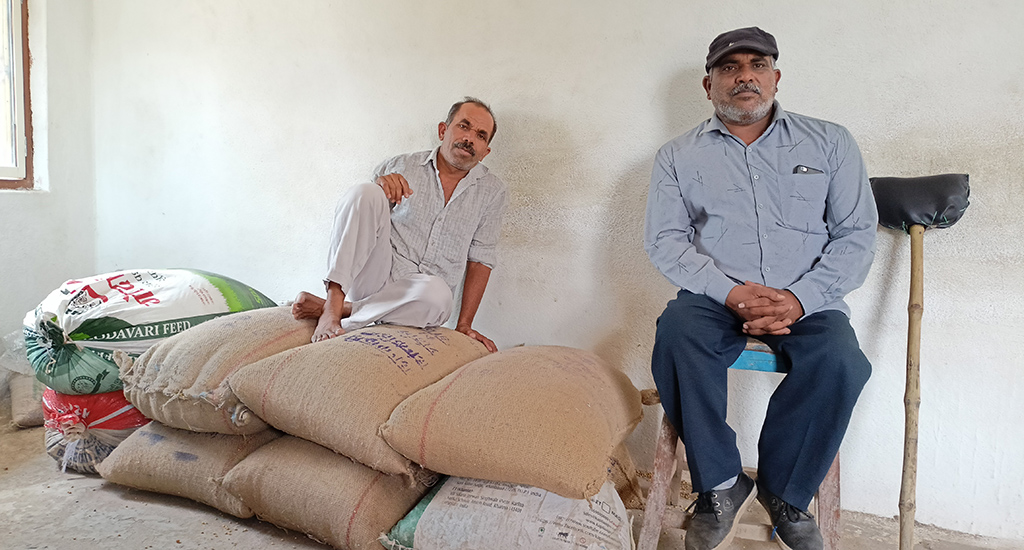
“Beej Gram” scheme makes farming financially viable
Farmers benefit by distributing seeds produced from the high quality foundation seeds that the Government of Madhya Pradesh supplies at a subsidised rate.

Farmers benefit by distributing seeds produced from the high quality foundation seeds that the Government of Madhya Pradesh supplies at a subsidised rate.
About 70% people in India derive their livelihood from farming. Yet, farmers find it a constant struggle to make ends meet. A range of reasons often makes farming a loss-making business.
“Beej Gram” scheme (seed village scheme) is aimed at making improved seeds which are optimally suited to the soil and micro-climate conditions of the village, available to the farmers. Its effective implementation and improved reach have enabled farmers to make farming viable. This is a major step in making farmers self-reliant.
The Beej Gram scheme
This scheme has been designed and is being implemented by the Farmer Welfare and Agriculture Development Department, Madhya Pradesh. Beej Gram refers to a village in which the scheme is being implemented.
Under this scheme, awareness about the optimal seed production is raised among farmers. And 50% subsidy is given on the price of seeds needed for one acre of land.

Beej Gram scheme is being implemented in all the districts of MP. Each district is given a target for implementation. Consequently, the number of villages and number of farmers participating in the scheme can vary across districts.
One of the main determinants of good production and good income from farming is the use of optimal and high quality seeds. Well-chosen and improved seeds lead to good production on the farmer’s land. The scheme ensures that participating farmers receive such well-chosen improved seeds before the time of sowing.
An important aspect of the scheme is that farmers use the seeds so provided to produce seeds for themselves and for their neighbours. The seeds so produced can be used for three subsequent years.
This ensures that more farmers get high quality seeds and their dependence on the market for seeds reduces. The farmers thus multiplying the seeds earn well, as they are able to sell these high quality seeds within the village at remunerative prices.
The Beej Gram scheme prioritises villages where farmers from scheduled castes and scheduled tribes (SC/ ST) form a majority.
For participating in the scheme, farmers have to apply to the gramsevak and the district agriculture officer. Farmers need to furnish copies of their Aadhar Card, bank account details and the land title document along with the application.

Selected farmers are given special training in three stages of production, namely, sowing, flowering and harvesting.
This scheme provides 40 kg of certified high quality foundation seed to 50 participating farmers of each chosen village, to use in one acre of their land.
Newly developed, certified and high quality seeds are given to the participating farmers. Seeds of staple crops, pulses and oilseeds are provided.
Farmers receive financial support for seeds produced. Further, farmers are encouraged to multiply the seeds on 0.5 acres of land. They are expected to sell the seeds produced from this plot to their neighbours and to farmers in nearby villages.
Farmers belonging to SC / ST categories receive Rs 1,500 for 10 quintals and Rs 3,000 for 20 quintals of seed. The other farmers receive Rs 1,000 and Rs 2,000 respectively.
Farmers are expected to continue with their usual agricultural operations in an unchanged manner. The intention is to demonstrate the efficacy of the improved seed, and hence agronomic practices are not changed.
Special care, however, needs to be taken for seed multiplication. The farmers need to ensure that there is no mixing of other seeds of the same crop in the plot in which foundation seeds are planted for multiplication. Such mixing will lead to reduced purity and the produce would not be useful as seeds.
Bijlon was among the chosen villages under the scheme in the Sehore District of MP. In this village 27 farmers were chosen for the Beej Gram scheme.

HI-8759 and HI1544 wheat seeds were provided to each of the 27 farmers in Bijlon.
Each farmer received 40 kg of seeds at 50% subsidy. So the farmers paid Rs 800 as their 50% contribution.
Ashish Tyagi, a participating farmer said, “I planted these seeds in one acre of land. I produced 18 quintals following the same practice as I did last year. This was three quintals more than the previous year. This enabled me to earn Rs 6,000 extra and save Rs 1,000 in the cost of cultivation. Thus my net gain in one acre was Rs 7,000 over last year.”
Three major issues plague the scheme:
The lead image at the top of this page shows Jeet Parmar addressing farmers of the Beej Gram scheme. (Photo courtesy Jeet Parmar)
Jeet Parmar is a social activist, presently working in Samarthan, a Bhopal-based organisation.
The story is the outcome of the Writeshop conducted by VikasAnvesh Foundation.